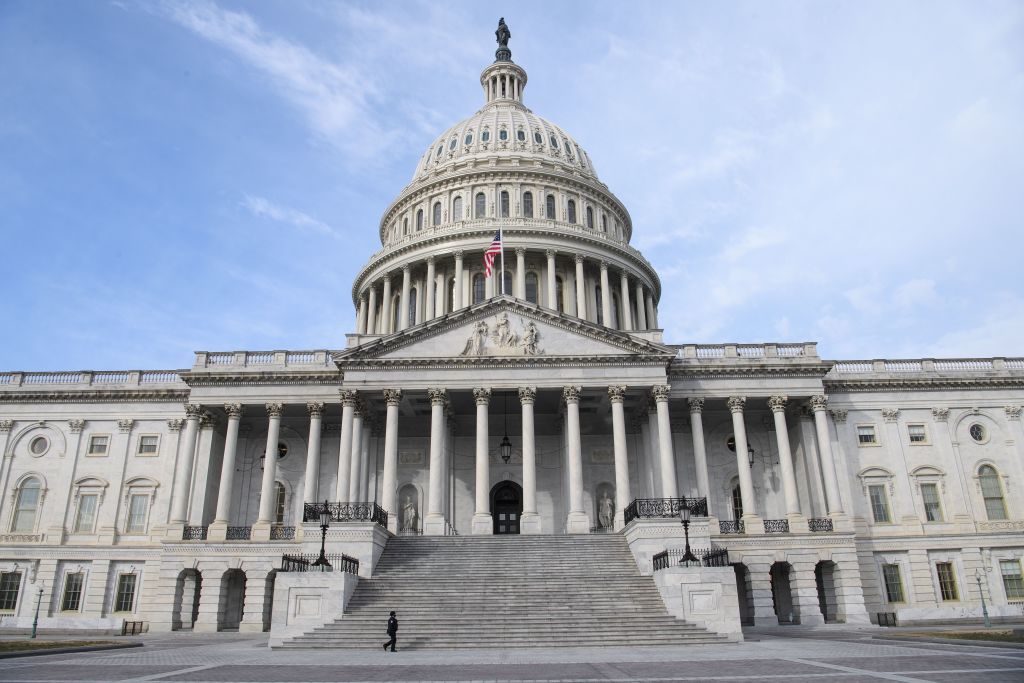House passes pro-union bill that would overhaul labor laws


A free daily email with the biggest news stories of the day – and the best features from TheWeek.com
You are now subscribed
Your newsletter sign-up was successful
With five Republicans joining almost all the Democrats, the House on Tuesday night passed the sweeping Protecting the Right to Organize (PRO) Act, which would reform labor laws and make it easier for workers to unionize.
The vote was 225-206. The PRO Act would forbid employers from interfering in union elections; prevent employers from using an employee's immigration status against them during employment negotiations; give the National Labor Relations Board the ability to fine companies and executives that violate workers' rights; and would allow unions to override "right-to-work" laws by collecting dues from workers who opt out of paying them.
AFL-CIO President Richard Trumka told NPR the PRO Act is "a game changer," and would "protect and empower our workers to exercise our freedom to organize a bargain." To truly "correct inequality in this country — wages and wealth inequality, opportunity, and inequality of power — passing the PRO Act is absolutely essential to doing that," he added.
The Week
Escape your echo chamber. Get the facts behind the news, plus analysis from multiple perspectives.

Sign up for The Week's Free Newsletters
From our morning news briefing to a weekly Good News Newsletter, get the best of The Week delivered directly to your inbox.
From our morning news briefing to a weekly Good News Newsletter, get the best of The Week delivered directly to your inbox.
President Biden also supports the legislation, saying in a statement on Tuesday that about 60 million Americans would join a union if given the opportunity, but "too many employers and states prevent them from doing so through anti-union attacks. They know that without unions, they can run the table on workers — union and non-union alike." The U.S. Chamber of Commerce and National Retail Federation are both against the PRO Act, with the latter calling it "the worst bill in Congress." The measure needs 60 votes to pass the Senate, where it faces opposition from Republicans.
A free daily email with the biggest news stories of the day – and the best features from TheWeek.com
Catherine Garcia has worked as a senior writer at The Week since 2014. Her writing and reporting have appeared in Entertainment Weekly, The New York Times, Wirecutter, NBC News and "The Book of Jezebel," among others. She's a graduate of the University of Redlands and the Columbia University Graduate School of Journalism.
-
 How the FCC’s ‘equal time’ rule works
How the FCC’s ‘equal time’ rule worksIn the Spotlight The law is at the heart of the Colbert-CBS conflict
-
 What is the endgame in the DHS shutdown?
What is the endgame in the DHS shutdown?Today’s Big Question Democrats want to rein in ICE’s immigration crackdown
-
 ‘Poor time management isn’t just an inconvenience’
‘Poor time management isn’t just an inconvenience’Instant Opinion Opinion, comment and editorials of the day
-
 TikTok secures deal to remain in US
TikTok secures deal to remain in USSpeed Read ByteDance will form a US version of the popular video-sharing platform
-
 Unemployment rate ticks up amid fall job losses
Unemployment rate ticks up amid fall job lossesSpeed Read Data released by the Commerce Department indicates ‘one of the weakest American labor markets in years’
-
 US mints final penny after 232-year run
US mints final penny after 232-year runSpeed Read Production of the one-cent coin has ended
-
 Warner Bros. explores sale amid Paramount bids
Warner Bros. explores sale amid Paramount bidsSpeed Read The media giant, home to HBO and DC Studios, has received interest from multiple buying parties
-
 Gold tops $4K per ounce, signaling financial unease
Gold tops $4K per ounce, signaling financial uneaseSpeed Read Investors are worried about President Donald Trump’s trade war
-
 Electronic Arts to go private in record $55B deal
Electronic Arts to go private in record $55B dealspeed read The video game giant is behind ‘The Sims’ and ‘Madden NFL’
-
 New York court tosses Trump's $500M fraud fine
New York court tosses Trump's $500M fraud fineSpeed Read A divided appeals court threw out a hefty penalty against President Trump for fraudulently inflating his wealth
-
 Trump said to seek government stake in Intel
Trump said to seek government stake in IntelSpeed Read The president and Intel CEO Lip-Bu Tan reportedly discussed the proposal at a recent meeting
